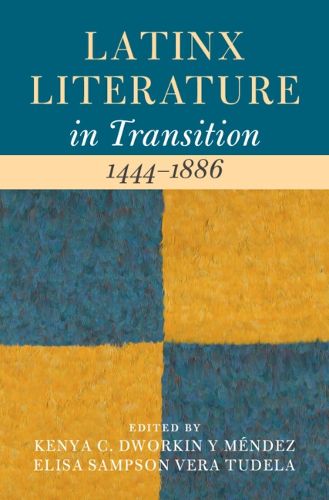Readings Newsletter
Become a Readings Member to make your shopping experience even easier.
Sign in or sign up for free!
You’re not far away from qualifying for FREE standard shipping within Australia
You’ve qualified for FREE standard shipping within Australia
The cart is loading…






This volume illuminates and gives voice to actors, objects, events, and processes from the early 1400s to the late 1800s and thinks about how they may relate to Latinx expressive literatures and cultures, challenging common paradigms that think of the field as resolutely modern. Drawing on a diverse range of expertise from scholars from around the globe and examining objects ranging from chronicles, histories, letters, journalism, poetry, talismans, performances, and comix, the volume engages with counternarratives and multifaceted contexts that address intersections of race, gender, class, and other social and political locations. The volume significantly contributes to methodological debates around Latina/o/x studies, offering in-depth and multiple explorations of how to imagine the field's complex evolution. It is an indispensable resource for those seeking to broaden their scholarly understanding of Latinx identity and literature, providing fresh insights and critical perspectives that will enrich academic discussions and research in this field.
$9.00 standard shipping within Australia
FREE standard shipping within Australia for orders over $100.00
Express & International shipping calculated at checkout
This volume illuminates and gives voice to actors, objects, events, and processes from the early 1400s to the late 1800s and thinks about how they may relate to Latinx expressive literatures and cultures, challenging common paradigms that think of the field as resolutely modern. Drawing on a diverse range of expertise from scholars from around the globe and examining objects ranging from chronicles, histories, letters, journalism, poetry, talismans, performances, and comix, the volume engages with counternarratives and multifaceted contexts that address intersections of race, gender, class, and other social and political locations. The volume significantly contributes to methodological debates around Latina/o/x studies, offering in-depth and multiple explorations of how to imagine the field's complex evolution. It is an indispensable resource for those seeking to broaden their scholarly understanding of Latinx identity and literature, providing fresh insights and critical perspectives that will enrich academic discussions and research in this field.